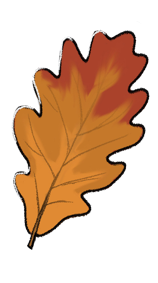A great number of literary and historical studies of the Beowulf poem exist, including online studies. This category contains online studies.
More information
More information
Sites 15
A collection of articles that treat the poem from the standpoint of anthropology and culture studies. From JEMNE (Journal of Early Medieval Northwestern Europe).
Compares Beowulf with works by other post-pagan Germanic authors and argues that the Beowulf poet takes a more favorable view of pre-Christian Germanic society than they do and readily incorporates themes, values, and characters from this ancient Germanic past in his poem. Click the Download button to view the document. By Walter Beverly.
Provides a literary history of the poem. Covers Scandinavian traditions, the personality of the hero, the origin and antiquity of the poem, and the religious element. Also provides a section-by-section summary of the poem.
A study of Beowulf and the Battle of Finnsburh by R.W. Chambers. Project Gutenberg e-book.
An interpretation of the poem by Craig R. Davis. Argues that the main theme of the poem is the human violence that threatens human communities.
A study of the mythological elements in the poem. Argues that these elements are a key to understanding the poem. By Marian A. Aitches.
[PDF]
J.R.R. Tolkien's famous essay, which changed the whole direction of Beowulf criticism.
[PDF]
Explains the Christian element in the poem and shows how the Beowulf poet interprets pagan concepts in Christian terms. By Rich Lawson.
Includes three essays on Beowulf in the context of the oral epic tradition in world literature.
Argues that Beowulf is not in essence a Christian poem, but rather a reflection of the values of a Germanic heroic society. By Benjamin Slade
Discusses the meaning of the monsters, compares them with the hero Beowulf, and argues for a moral reading of the poem. By Victoria Symons. From the British Library.
Explains the genre of heroic poetry to which Beowulf belongs and examines several poems in this genre. Includes manuscript images. By Michael Bintley.
An article about J.R.R Tolkien, his translation of Beowulf, and his ground-breaking essay "Beowulf: the Monsters and the Critics." Includes a comparison with Seamus Heaney's translation and a summary of the major events of the poem. By Joan Acocella.
Offers a psychological interpretation of the poem. Expands on the ideas in James W. Earl's book "Thinking about Beowulf." By Eileen A. Joy.
Argues that the pagan funeral ceremonies for Beowulf at the end of the poem represent his deification by his people. Because of his heroic deeds, Beowulf has become a god. Numerous parallels in Anglo-Saxon and other ancient literatures and cultures are cited. By Fred C. Robinson.
Explains the genre of heroic poetry to which Beowulf belongs and examines several poems in this genre. Includes manuscript images. By Michael Bintley.
Discusses the meaning of the monsters, compares them with the hero Beowulf, and argues for a moral reading of the poem. By Victoria Symons. From the British Library.
A collection of articles that treat the poem from the standpoint of anthropology and culture studies. From JEMNE (Journal of Early Medieval Northwestern Europe).
Includes three essays on Beowulf in the context of the oral epic tradition in world literature.
Compares Beowulf with works by other post-pagan Germanic authors and argues that the Beowulf poet takes a more favorable view of pre-Christian Germanic society than they do and readily incorporates themes, values, and characters from this ancient Germanic past in his poem. Click the Download button to view the document. By Walter Beverly.
Argues that the pagan funeral ceremonies for Beowulf at the end of the poem represent his deification by his people. Because of his heroic deeds, Beowulf has become a god. Numerous parallels in Anglo-Saxon and other ancient literatures and cultures are cited. By Fred C. Robinson.
J.R.R. Tolkien's famous essay, which changed the whole direction of Beowulf criticism.
[PDF]
An interpretation of the poem by Craig R. Davis. Argues that the main theme of the poem is the human violence that threatens human communities.
An article about J.R.R Tolkien, his translation of Beowulf, and his ground-breaking essay "Beowulf: the Monsters and the Critics." Includes a comparison with Seamus Heaney's translation and a summary of the major events of the poem. By Joan Acocella.
A study of the mythological elements in the poem. Argues that these elements are a key to understanding the poem. By Marian A. Aitches.
[PDF]
A study of Beowulf and the Battle of Finnsburh by R.W. Chambers. Project Gutenberg e-book.
Provides a literary history of the poem. Covers Scandinavian traditions, the personality of the hero, the origin and antiquity of the poem, and the religious element. Also provides a section-by-section summary of the poem.
Offers a psychological interpretation of the poem. Expands on the ideas in James W. Earl's book "Thinking about Beowulf." By Eileen A. Joy.
Explains the Christian element in the poem and shows how the Beowulf poet interprets pagan concepts in Christian terms. By Rich Lawson.
Argues that Beowulf is not in essence a Christian poem, but rather a reflection of the values of a Germanic heroic society. By Benjamin Slade

Last update:
December 11, 2023 at 20:39:08 UTC

Check out
Regional: Europe: United Kingdom: Scotland: Glasgow, City of: Business and Economy: Property: Surveyors
- Recently edited by merlin1
- Recently edited by merlin1